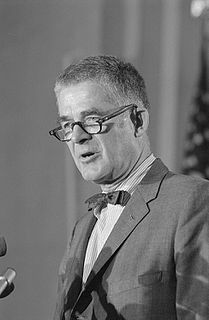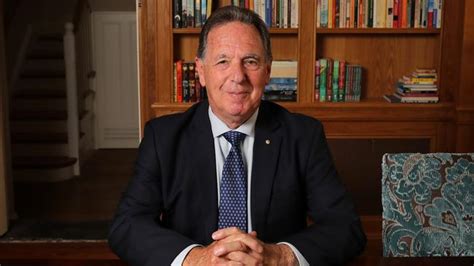A Quote by William Jennings Bryan
A corporation has no rights except those given it by law. It can exercise no power except that conferred upon it by the people through legislation, and the people should be as free to withhold as to give, public interest and not private advantage being the end in view.
Related Quotes
If the white man wants to live in peace with the Indian, he can live in peace. Treat all men alike. Give them all the same law. Give them all an even chance to live and grow. All men were made by the same Great Spirit Chief. They are all brothers. The Earth is the mother of all people, and all people should have equal rights upon it. Let me be a free man, free to travel, free to stop, free to work, free to trade where I choose, free to choose my own teachers, free to follow the religion of my fathers, free to think and talk and act for myself, and I will obey every law, or submit to the penalty.
Let the Fourth of July always be a reminder that here in this land, for the first time, it was decided that man is born with certain God-given rights; that government is only a convenience created and managed by the people, with no powers of its own except those voluntarily granted to it by the people. We sometimes forget that great truth, and we never should. Happy Fourth of July.
Conscience is the most sacred of all property; other property depending in part on positive law, the exercise of that being a natural and unalienable right. To guard a man's house as his castle, to pay public and enforce private debts with the most exact faith, can give no title to invade a man's conscience, which is more sacred than his castle, or to withhold from it that debt of protection for which the public faith is pledged by the very nature and original conditions of the social pact.
A free society depends upon a high degree of mutual trust. The public will not give that trust to officials who are not seen to be impartially dedicated to the general public interest, nor will they give trust to those high in government who violate the rule of law they ask citizens to obey at the expense of self-interest, or to those who present government as the place where one feathers his own nest, [or] exchanges favors with friends and former associates.
It is inconceivable that the God who gives Himself in His Son to save us, should have created some people ordained to evil and damnation. There can only be one predestination to salvation. In and through Jesus Christ all people are predestined to be saved. Our free choice is ruled out in this regard. God wants free people, except in relation to this last and definitive decision. We are not free to decide and choose to be damned.
Public virtue cannot exist in a nation without private, and public virtue is the only foundation of republics. There must be a positive passion for the public good, the public interest, honour, power and glory, established in the minds of the people, or there can be no republican government, nor any real liberty: and this public passion must be superiour to all private passions.
Markets are born free, yet no sooner are they born than some would-be emperor is forging chains. Paradoxically, it sometimes happens that the only way to preserve freedom is through judicious controls on the exercise of private power. If we believe in liberty, it must be freedom from both private and public coercion.
I propose a limitation be put on how many sqares of toilet paper can be used in any one sitting. Now, I don't want to rob any law-abiding American of his or her God-given rights, but I think we are an industrious enough people that we can make it work with only one square per restroom visit, except, of course, on those pesky occasions where 2 to 3 could be required.
The Rights Revolutions too have given us ideals that educated people today take for granted but that are virtually unprecedented in human history, such as that people of all races and creeds have equal rights, that women should be free from all forms of coercion, that children should never, ever be spanked, that students should be protected from bullying, and that there’s nothing wrong with being gay. I don’t find it at all implausible that these are gifts, in part, of a refined and widening application of reason.




































